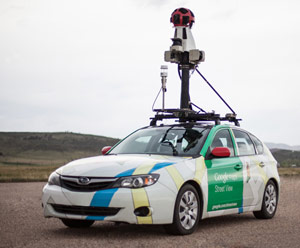High-Tech Tool Turns Up Dozens of Natural Gas Leaks in Florida City
Posted May 31, 2016 06:45 am | Public News Service
 JACKSONVILLE,
FL – How safe are the natural gas lines under your
street? A new high-tech tool is helping to answer that
question, while potentially sparing damage to the
environment and your wallet.
JACKSONVILLE,
FL – How safe are the natural gas lines under your
street? A new high-tech tool is helping to answer that
question, while potentially sparing damage to the
environment and your wallet.
The collaboration between the
Environmental Defense Fund and Google Earth Outreach
sent cars equipped with special sensors driving all
across Jacksonville to create an interactive map that
shows where methane is leaking from natural gas lines.
Environmental Defense Fund consultant Mary Gade says
researchers drove more than 820 miles and found nearly
90 small leaks, many of which were unknown to the
utility company.
She says even small leaks pose a big environmental
challenge.
"They're not a safety hazard, and so for years can be
leaking methane into the atmosphere, causing climate
impacts," says Gade. "And then of course, there's also
consumer ramifications from this, because any gas that's
lost from the system is an economic loss for
ratepayers."
She explains if methane is allowed to leak into the air
before being used, it absorbs the sun's heat, warming
the atmosphere. For this reason, it's considered a
greenhouse gas, like carbon dioxide.
Jacksonville is one of eight cities nationwide to pilot
this leak-mapping technology.
Gade says Jacksonville fared much better than other
cities with older infrastructures they've mapped,
including Chicago and Boston. She adds Florida should be
proud of its strong regulatory framework for replacing
and repairing older pipes, although sometimes, smaller
leaks go undetected.
Gade says the new mapping technology could be a valuable
tool in the fight to reduce climate change.
"Methane is a very, very powerful greenhouse gas
pollutant, even more powerful than carbon dioxide," she
says. "In fact, over the first 20 years of its life,
it's 84 times more potent than carbon dioxide."
Last year, the EPA proposed the first-ever rule to
directly limit methane emissions from oil and gas
operations, which Gade says provides another opportunity
to reduce climate pollution.
Photos/graphics, layout, and links added by the Observer
Photo: Environmental Defense Fund
This piece was reprinted by the Columbia County Observer with permission or license. It may not be reproduced in any form without permission or license from the source.
